Users' documentation preferences (1)
At the Bransom User Group meeting in April 2007, TechScribe researched users' experiences of the software documentation that they receive. TechScribe used a questionnaire to ask the users about their job roles, their documentation preferences, and their experiences of the Bransom user guide.
This summary shows some of the results from the first two sections of the survey. We show the questions that we asked, but not the answer options, because the results show the answer options. (The text on the charts is simplified. The questionnaire contained more detail to help people to respond accurately.)
We received 29 replies from 64 people.
Bransom and its users
Bransom Retail Systems (www.bransom.co.uk) supplies computer systems to retail jewellers. Bransom's Jewellery Stock Management system is recommended by the National Association of Goldsmiths.
The software is used by a range of customers, from small independent jewellers with only one shop to well-known national chains.
The persons who replied have many different job roles:
- Owner or director
- Manager (sales, marketing, accounts)
- Buyer
- Administration, clerical.
Preferred delivery format
Question: what delivery format do you prefer, if any?
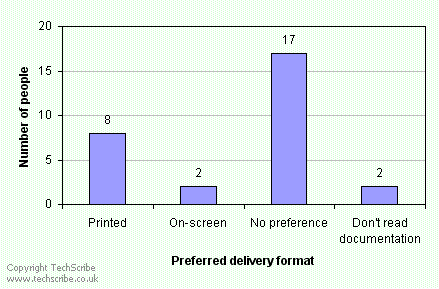
More people prefer printed documentation than on-screen documentation. However, most people have no preference. Possibly, what is most important to people is that the content answers their questions.
Method of finding information
Question: when you need to find information in a book about performing a task, which of these do you use? Tick all that apply.
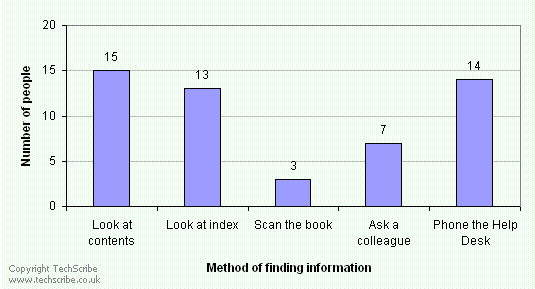
Almost half the persons who replied use both the service desk and the documentation. Bransom is proud of its service desk. "It's easier to ring the helpline," said one person. Good documentation can decrease telephone calls to a service desk. However, if the service desk is a selling point, a business case for decreasing the telephone calls possibly does not exist.
Importance of background information
Question: how important is background information about how the product works?
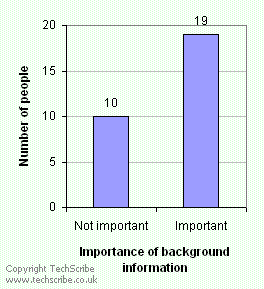
Background information about software is important to two-thirds of the users. Therefore, good documentation includes concepts of operation, explanations of workflows, and explanations of how the software is related to business procedures. Good design makes sure that people who are not interested can see that the information is an option for the people who are interested.
Type of documentation
Question: which of these types of documentation do you prefer?
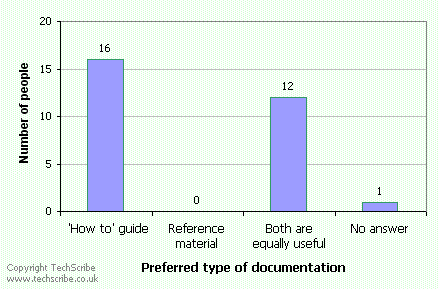
No users prefer reference manuals to 'how to' user guides. However, almost half the users think that reference information is as useful as procedural 'how to' information. Clearly, reference manuals are important.
Method of explanations
Question: do you prefer explanations using visuals, descriptions or both?
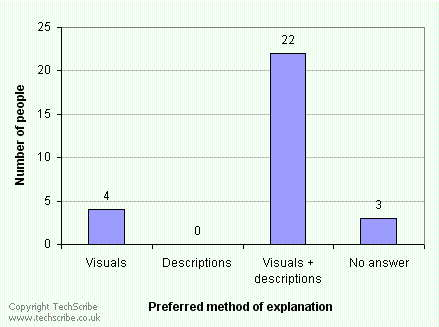
Although people learn in different ways, most users prefer explanations that mix both words and images.
Conclusions
The results show what people want from user documentation. (We do not claim that the results are statistically significant.)
Clearly, we cannot please everyone. However, these results show that the strategy we use at TechScribe is a practical solution that usually helps most people.
See also ![]()
Users' documentation preferences (2)